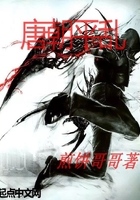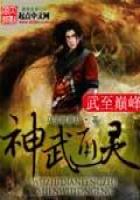Then an idea seized him, and, forgetting the precautions that had hitherto served so well, he came to a sudden stop on the pavement, engrossed in deep thought. Was the man who dogged his steps Rupert himself? It would be like Rupert to track him, like Rupert to conceive such an attack, like Rupert to be ready either for a fearless assault from the front or a shameless shot from behind, and indifferent utterly which chance offered, so it threw him one of them. Mr. Rassendyll asked no better than to meet his enemy thus in the open. They could fight a fair fight, and if he fell the lamp would be caught up and carried on by Sapt's hand or mine; if he got the better of Rupert, the letter would be his; a moment would destroy it and give safety to the queen. I do not suppose that he spent time in thinking how he should escape arrest at the hands of the police whom the fracas would probably rouse; if he did, he may well have reckoned on declaring plainly who he was, of laughing at their surprise over a chance likeness to the king, and of trusting to us to smuggle him beyond the arm of the law. What mattered all that, so that there was a moment in which to destroy the letter? At any rate he turned full round and began to walk straight towards Bauer, his hand resting on the revolver in the pocket of his coat.
Bauer saw him coming, and must have known that he was suspected or detected. At once the cunning fellow slouched his head between his shoulders, and set out along the street at a quick shuffle, whistling as he went. Rudolf stood still now in the middle of the road, wondering who the man was: whether Rupert, purposely disguising his gait, or a confederate, or, after all, some person innocent of our secret and indifferent to our schemes. On came Bauer, softly, whistling and slushing his feet carelessly through the liquid mud. Now he was nearly opposite where Mr. Rassendyll stood. Rudolf was well-nigh convinced that the man had been on his track: he would make certainty surer. The bold game was always his choice and his delight; this trait he shared with Rupert of Hentzau, and hence arose, I think, the strange secret inclination he had for his unscrupulous opponent. Now he walked suddenly across to Bauer, and spoke to him in his natural voice, at the same time removing the scarf partly, but not altogether, from his face.
"You're out late, my friend, for a night like this."
Bauer, startled though he was by the unexpected challenge, had his wits about him. Whether he identified Rudolf at once, I do not know; I think that he must at least have suspected the truth.
"A lad that has no home to go to must needs be out both late and early, sir," said he, arresting his shuffling steps, and looking up with that honest stolid air which had made a fool of me.
I had described him very minutely to Mr. Rassendyll; if Bauer knew or guessed who his challenger was, Mr. Rassendyll was as well equipped for the encounter.
"No home to go to!" cried Rudolf in a pitying tone. "How's that?
But anyhow, Heaven forbid that you or any man should walk the streets a night like this. Come, I'll give you a bed. Come with me, and I'll find you good shelter, my boy."
Bauer shrank away. He did not see the meaning of this stroke, and his eye, traveling up the street, showed that his thoughts had turned towards flight. Rudolf gave no time for putting any such notion into effect. Maintaining his air of genial compassion, he passed his left arm through Bauer's right, saying:
"I'm a Christian man, and a bed you shall have this night, my lad, as sure as I'm alive. Come along with me. The devil, it's not weather for standing still!"
The carrying of arms in Strelsau was forbidden. Bauer had no wish to get into trouble with the police, and, moreover, he had intended nothing but a reconnaissance; he was therefore without any weapon, and he was a child in Rudolf's grasp. He had no alternative but to obey the suasion of Mr. Rassendyll's arm, and they two began to walk down the Konigstrasse. Bauer's whistle had died away, not to return; but from time to time Rudolf hummed softly a cheerful tune, his fingers beating time on Bauer's captive arm. Presently they crossed the road. Bauer's lagging steps indicated that he took no pleasure in the change of side, but he could not resist.
"Ay, you shall go where I am going, my lad," said Rudolf encouragingly; and he laughed a little as he looked down at the fellow's face.
Along they went; soon they came to the small numbers at the station end of the Konigstrasse. Rudolf began to peer up at the shop fronts.
"It's cursed dark," said he. "Pray, lad, can you make out which is nineteen?"
The moment he had spoken the smile broadened on his face. The shot had gone home. Bauer was a clever scoundrel, but his nerves were not under perfect control, and his arm had quivered under Rudolf's.
"Nineteen, sir?" he stammered.
"Ay, nineteen. That's where we're bound for, you and I. There I
hope we shall find--what we want."
Bauer seemed bewildered: no doubt he was at a loss how either to understand or to parry the bold attack.
"Ah, this looks like it," said Rudolf, in a tone of great satisfaction, as they came to old Mother Holf's little shop.
"Isn't that a one and a nine over the door, my lad? Ah, and Holf!
Yes, that's the name. Pray ring the bell. My hands are occupied."
Rudolf's hands were indeed occupied; one held Bauer's arm, now no longer with a friendly pressure, but with a grip of iron; in the other the captive saw the revolver that had till now lain hidden.
"You see?" asked Rudolf pleasantly. "You must ring for me, mustn't you? It would startle them if I roused them with a shot."
A motion of the barrel told Bauer the direction which the shot would take.
"There's no bell," said Bauer sullenly.
"Ah, then you knock?"
"I suppose so."
"In any particular way, my friend?"
"I don't know," growled Bauer.
"Nor I. Can't you guess?"
"No, I know nothing of it."
"Well, we must try. You knock, and--Listen, my lad. You must guess right. You understand?"
"How can I guess?" asked Bauer, in an attempt at bluster.















